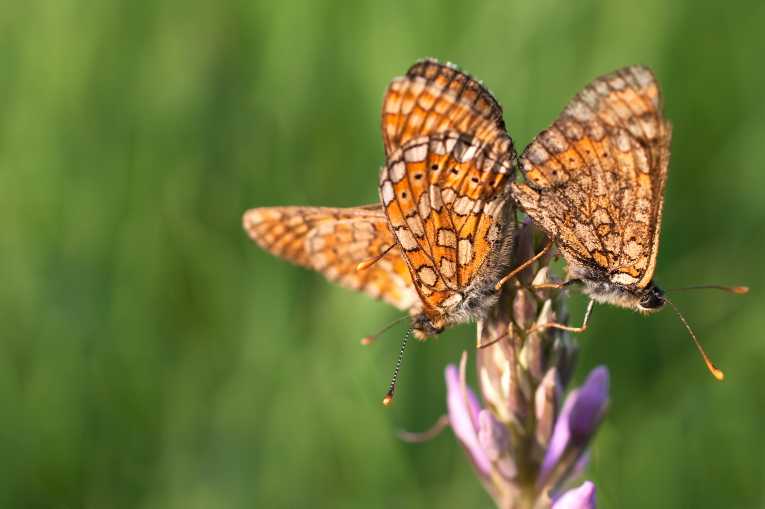Some of Britain's most threatened species of butterfly are showing signs of recovery after a generation of decline indicating the success of conservation efforts.
Butterfly Conservation, a charity working to halt and reduce the decline of butterflies and moths in the UK, has revealed the weather in 2010 helped to boost a number of species. The Wood White has suffered a 96% decline since the 1970s. It enjoyed a six fold increase over 2009. The Marsh Fritillary doubled its numbers in 2010 from 2009, reversing along term decline since the 50s.
The data comes from the UK Butterfly Monitoring Scheme, the largest of its kind in the world which is run by Butterfly Conservation and the Centre for Ecology and Hydrology.
While it reveals three-quarters of threatened species have increased since 2009, there have been some reductions. Both the Meadow Brown and Lulworth Skipper had their worst years on record, with the latter down 93%.
However, the successes have been marred by proposed cuts to Natural England, which distributes much of the funding to butterfly conservation projects. The Department for Environment, Food and Rural Affairs (DEFRA) is reducing its own budget by 30%. The expectation is that Natural England will be forced to cut its own staff and money it provides for the management of some nature reserves and bespoke landscapes for butterflies.
Dr Tom Brereton, Head of Monitoring at Butterfly Conservation said: ''Over the last decade, Butterfly Conservation has developed a large number of landscape scale projects with a wide range of statutory and non-statutory partners to improve and restore habitats for threatened butterflies. This has particularly helped the Marsh Fritillary and more recently the Wood White and some other species too are beginning to recover. It shows these projects are working, given time''.
Dr Marc Botham, Butterfly Ecologist at the Centre for Ecology & Hydrology adds, ''The continued dedication of thousands of volunteers enables us to analyse both short and long-term trends in the abundance of butterflies. Butterflies are highly sensitive to how our countryside is changing and the UKBMS data has revealed how butterflies are already being impacted by climate change as well as whether our conservation measures are working''.
Image Credit: © Gabriela - Marsh Fritillary.










